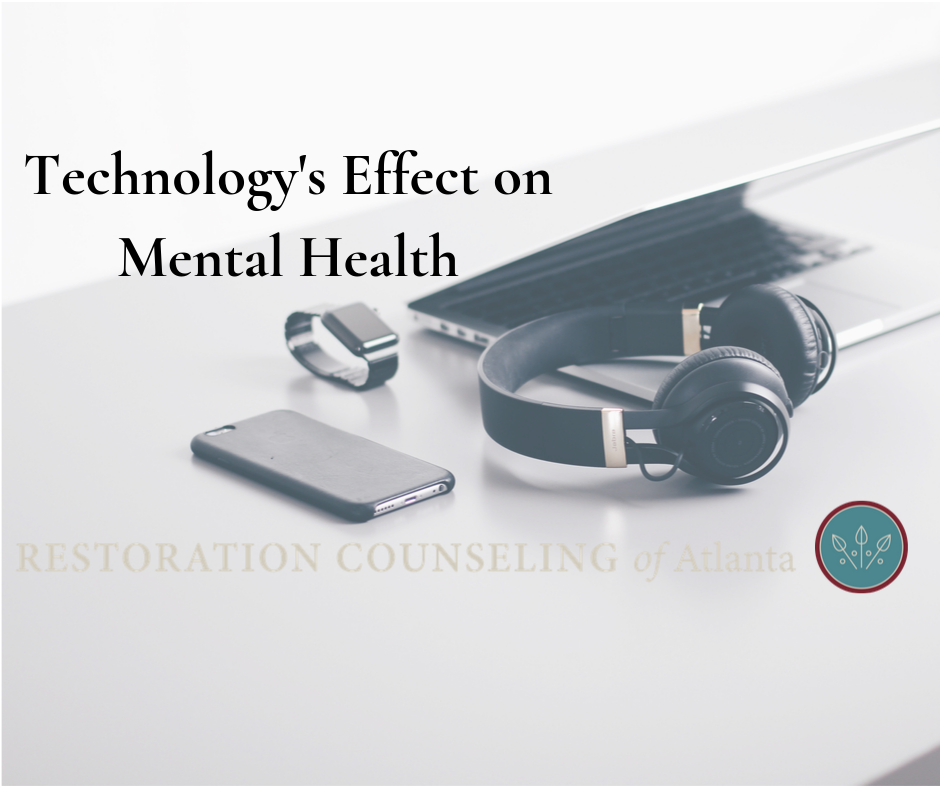Technology is all around us. For most of us, technology is how we accomplish most of our day to day responsibilities. It’s also how we entertain ourselves. The finger usually points at social media as the black sheep in the technology family. However, the real problem is not just the usefulness of the content, but understanding how technology itself changes the way our brain operates.
Our Brains and Technology
Our brains are highly wired to help us survive. Goals like pain minimization and pleasurable experiences naturally bypass higher thinking areas like planning, reasoning, logic, personality, and emotion. If someone has ADD or Austistic traits, the impact can be even greater since those areas are already compromised. Technology is designed to provide instantaneous relief to what we perceive as a need. This reinforces our brains to depend on this mode for “survival.” The greater the availability of this “fix,” the greater the dependence on it.
Experts once thought that our brains were fixed; unchangeable after a certain age. We now know that our brains have “neuroplasticity” and will conform somewhat based on neural activity. Pavlo’s study on conditioning dogs to salivate to a bell as if it was food demonstrates this basic concept. Technology has the power to condition our brain to respond to its presence in non-instinctual ways. Technology can often be like a shock collar in our pocket. It keeps us subconsciously conditioned to its demands.
What We Know About Technology
Given the power of technology to rewire our brains, we are beginning to contemplate the cons of this. Scientists are doing studies, but we have yet to totally understand the long-term effects. The current generation is really the first generation that has been subjected to this type of influence from birth. What we do know is that treatment centers for technology addiction are popping up nationwide. In addition, therapists have little protocol for treatment.
Some of the lesser cons commonly observed are:
1. FOMO (Fear of Missing Out)
We are constantly bombarded with unlimited choices for activities and entertainment. We’re seeing in real-time what wonderful things our friends and family are doing. This can lead us to feel like we are missing out or are going to miss out on what we perceive to be pleasurable, enjoyable, or a way to fit in.
-
- This can greatly impact teens who are already in a stage of insecurity regarding who they are and if they belong. Parents may be tempted to give or allow their teens access to social media in an attempt to prevent them from feeling left out. What we need to consider is that we may be actually creating the very thing we are trying to prevent.
- As adults, without awareness, we may be dwelling on these same subconscious beliefs. This can lead to us to feel anxious, depressed, or lacking purpose. It can also be what drives us as adults to work more so we can then “play” more, leaving little downtime for personal or family activities. These activities are essential for healthy physical and emotional well being.
2. Non-present Thinking
This is a bit different than FOMO, as there may not be a fear of missing out. Upon observation, it is a lack of mindfulness. Mindfulness is simply purposeful awareness of the present moment. When our mind is either focused on the past (looking back at old emails, photos, videos, information, etc. that we didn’t have time earlier to deal with) or on the future (adjusting our schedule, planning the next whatever, etc.), we are actually not living in the present.
We would all agree that these temptations were present before technology came about. Now the constant presence of technology means that we tend to never have a beginning time and an ending time. We are expected to be “on call” all the time. Aside from the 24/7 access we have to technology, the amount of information available at our fingertips can be overwhelming. I remember as a 20 something-year-old hearing the term TMI for the first time and not knowing it meant “too much information.” This seemed like a new concept to me in the 1980s.
3. The need for instant gratification
This goes along with the thinking that we suffer from a “shortage of time.” Remember when reading a book or working a puzzle was considered a normal pastime? Technology has made it harder for us to cultivate the character quality of patience or ownership regarding how to pacify our own discomfort. As adults, we’re often irritated when our package takes more than two days to be delivered, or we have to wait too long in line to check out at the store. Many children don’t know how to occupy themselves without the stimuli equivalent to technology. At its inception, technology was touted as a way to give us more time in our day. Somehow, we find that we now have less time in our schedule for basic responsibilities.
Although we can argue about the benefits of technology, the truth is that technology does have the potential to negatively impact our brain and our mental health. Thankfully, we are still smarter than our smart devices and can override their negative aspects.
Remedies might look like:
- Not following the norm for ourselves and our children when it comes to technology. Be the leader in the change. Resist the urge to look at your phone when you are with your family, especially when your partner or child is talking to you. Capturing the moment with the camera on your phone can even detach you momently from the present experience. Reinstate family meals and make dinner times a tech-free zone. If you choose to allow your child or teen to have a device, utilize parental screen time apps that block and/or limit times and social media sites.
- Be intentional to create a balance of human interaction and activities with technology times. Consider removing notifications for non-essential things from your phone. Avoid the temptation to let technology be a babysitter for children of any age. It is too early yet to know the long term effects of technology on young children, but we do know that younger brains are more negatively affected in other areas of concern. Enduring a fidgety and whiny child not only helps us to develop patience and communicate compassion, but it helps our little one to tolerate discomfort knowing that it is part of life.
- Remember, we are all seeking the comfort of knowing that we are enough, we belong, and we are well-loved. Technology can never truly provide that and good old fashioned relationships can. So, creating technology restrictions without replacing it with authentic connections will only leave one to seek an alternative source of comfort.
If you or a loved one are struggling to find balance with technology and would like some extra support, we are here to help.
 Written by: Debbie Turner, LPC
Written by: Debbie Turner, LPC
debbiet@restorationcounselingatl.com, ext. 157
Roswell Location
Debbie Turner received her Master’s in Marriage and Family Therapy from Richmont Graduate University; an academically sound, Christ-centered program. She is passionate about helping individuals and couples learn new ways of connecting with Christ and others to facilitate healing, transformation, and restoration.
Debbie has also completed training from Postpartum Support International. She is qualified to assess and treat women struggling with issues like depression, anxiety, anger, intrusive thoughts, or repetitive behaviors that can occur during pregnancy or after delivery.

